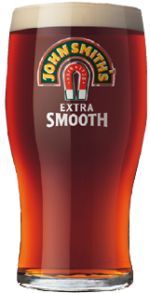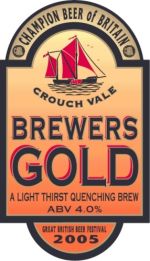 |
 |
|

|
|

|
 |
home
about
Protz
features
A-Z
books
|
|
Protz:
features
reviews
tastings
news & events
books
|

| |
Real ale crisis? What crisis?
by Willard Clarke, 01/05
If I had a pound for every article I have read in the past year about the "real ale crisis" I would have money in the bank. The truth behind the headlines is rather different and if there is a crisis, then all I can say is, lets have more of them.
Take, for example, the 2006 edition of the Good Beer Guide. It lists more than 80 new breweries that have come on stream between the autumns of 2004 and 2005. They are all micro breweries, producing only cask beer and, occasionally, bottled versions of the draught brands.
Are they owned and run by certifiable lunatics, people that have sunk their savings or redundancy payments into breweries that will produce beer nobody wants to drink? Or are they, perhaps, meeting genuine consumer demand?
Cynics, who are not in short supply, will say the sudden rush of new micros has been driven by Progressive Beer Duty, a scheme introduced by the government that reduces duty levels on production up to a maximum of 30,000 barrels a year. But savings of a few thousand pounds a year, while welcome, cannot alone explain the rush to fire new mash tuns and coppers. In spite of the problems of getting beer into outlets owned by national pub companies that command deep discounts from producers, new micros are finding a ready market for their products.
And yet official figures and stats for total beer sales show that the cask beer sector has declined rapidly over the past 15 years. The explanation for the discrepancy between the statistics and the apparent boom in cask beer production is explained by the virtual withdrawal from the sector of the four national brewing groups that account for 80 per cent of total beer production.
Scottish & Newcastle has closed both its Edinburgh and Newcastle plants. Its only major ale brand is John Smith's and this is available mainly in "smooth" nitro-keg form
rather than cask. Carlsberg has followed a similar path with Tetley. In the autumn of 2005, the Danish group did promise some new support for cask Tetley's Bitter, but the main emphasis is also on the nitro-keg version.
Coors, which owns the former Bass and Ind Coope plants in Burton-on-Trent, out-sources all its cask beer production to regional brewers, having removed its cask racking plant. Inbev, as we must learn to call the former Interbrew, has handed production of its two main cask brands, Draught Bass and Boddingtons, to Marston's and Hydes respectively.
When the nationals sideline cask beer in favour of lager and nitro-keg, the figures for the sector do look gloomy. But strip out the nationals and a quite different picture emerges, one that shows the sector reviving as both micros and regional brewers record striking increases in sales.
|
|

|
In 1994 I dropped in on Bill Sharp as he was setting up Sharp's Brewery in one unit of an industrial estate at Rock in Cornwall. Bill was using a 10-barrel plant to brew Doom Bar and his other beers. Ten years on, Sharp's is producing 25,000 barrels a year and will add additional brewing capacity in 2006. It supplies some 650 free trade accounts, has a distribution facility in Bristol and is a power in the South-west as well as Cornwall.
In Somerset, Butcombe started life 25 years ago as a cottage industry, producing 10 barrels at a time. In 2005 it moved to a new custom-built plant capable of brewing 40,000 barrels a year - ironically, its growth is restrained by the upper limit of Progressive Beer Duty. In common with Sharp's, Butcombe has moved from micro status to being a fully-fledged regional brewer.
The Chiltern Brewery near Aylesbury is another small producer with a 25-year track record. In a Home Counties setting with little genuine free trade, Chiltern has carved out a small but successful niche with an impressive range of bottle-fermented beers as well as draught. The beers are on sale at the brewery's own shop as well as at farmer's markets. It has leased from the National Trust the historic King's Head in Aylesbury where its cask beers are in great demand. In the autumn of 2005, a new brewhouse and fermenting rooms were opened to keep pace with demand.
In Yorkshire, Copper Dragon of Skipton opened in 2003 and has quadrupled production in just three years. Hogs Back in Surrey has commissioned new coppers and fermenters to cope with the clamour for its beers, a clamour that is met not only by selling to pubs but also by e-commerce.

|
|
Crouch Vale in Essex had planned to move to a new site in 2006 before the brewery won the Champion Beer of Britain trophy at Camra's Great British Beer Festival in
August. The new plant will be urgently needed as sales of its beers are likely to rocket as a result of winning the award, as Caledonian of Edinburgh can testify. Its Deuchars IPA has become a national brand since it won
the championship.
The success of the small brewers is underscored by the 2005 annual report of SIBA, the Society of Independent Brewers that represents the interests of the micros and smaller regionals. It says that sales among its
members have grown by an average of 12 per cent a year in 2005 compared to the previous year, with six out of 10 SIBA members reporting growth in excess of 10 per cent. The micros' share of the cask sector has
grown to more than 20 per cent, up from 14 per cent in 2003.
|
The growth of the cask sector is not confined to the micros. The regionals are also in rude good health. Timothy Taylor in West Yorkshire has invested �11 million in a decade to boost production from 27,000 barrels a year to close to 50,000. Fuller's in West London is a major national brewing force, with London Pride alone accounting for 130,000 barrels a year, making it the biggest-selling premium cask beer in Britain.
Adnams, once confined to its small tied estate in Suffolk, also enjoys a national presence with Bitter and Broadside. A major investment of �10 million will see the opening in 2006 of a new brewhouse and warehouse that will enable production to rise to 150,000 barrels a year. The new brewery, using German equipment, has been designed to conserve energy, a wise move as new EU guidelines for the European brewing industry are likely to mean that older brewing kit that has a high level of wastage and is not energy proficient is destined for the scrap heap.
The success stories roll on. Charles Wells of Bedford, the biggest family-owned independent brewer in Britain, has turned Bombardier premium bitter into a national brand that is now one of the country's top ten best sellers. Hydes in Manchester has doubled its capacity to 200,000 barrels a year, helped by the contract to brew the cask version of Boddingtons.
Daniel Thwaites of Blackburn, a regional giant in the North-west, with a tied estate of more than 400 pubs, went down the nitro-keg route in the 1990s but has returned to the cask fold with enthusiasm. Its Lancaster Bomber cask premium bitter is a massive seller, aided by the fortuitous endorsement of Andrew "Freddy" Flintoff, star of the England Ashes triumph in the summer of 2005.
North, south, east and west there are encouraging signs of growth in the cask sector at both micro and regional brewery level. The doomsters have been defeated.
Crisis? Bring it on!
|
|
home
about
Protz
features
A-Z
books
|